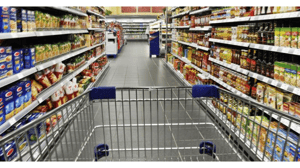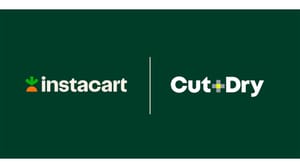Retailers Face New Rules in Accepting FSA Cards
How many food retailers will be ready to continue accepting flexible spending account (FSA) debit cards from consumers on Jan. 1? That's the day a new IRS rule goes into effect governing the acceptance by supermarkets and mass merchants of FSA cards, which electronically tap into a consumer's annual tax-exempted income set aside to pay for health-related products. The rule states that to legally process
December 31, 2007
MICHAEL GARRY
How many food retailers will be ready to continue accepting flexible spending account (FSA) debit cards from consumers on Jan. 1?
That's the day a new IRS rule goes into effect governing the acceptance by supermarkets and mass merchants of FSA cards, which electronically tap into a consumer's annual tax-exempted income set aside to pay for health-related products. The rule states that to legally process these cards at their POS lanes, food retailers are required to have in place what the IRS calls an “inventory information approval system (IIAS).”
The IIAS allows a retailer to electronically compare a shopper's scanned purchases to a list of IRS-approved health-related products to which FSA debit cards may be applied, and to process payment for those health products using FSA funds; eligible health products include prescriptions and over-the-counter items. Other products in the same basket would be purchased using a different form of tender.
FSA cards have existed for about a decade and have been accepted without restrictions by food retailers and treated as a standard debit card transaction. Retailers are under no obligation to continue accepting FSA cards, but given their popularity with consumers, most major retailers have been taking the sometimes arduous and expensive steps necessary to accept the cards starting in January.
“Most FMI members are working on this, and more than half will be ready by Jan. 1,” said Jennifer Hatcher, senior director of government relations for the Food Marketing Institute, Arlington, Va. “Others will need more time.”
“We'll be ready by Jan. 1,” Mike Skokan, vice president of financial reporting for Hy-Vee, West Des Moines, Iowa, recently told SN.
Some food retailers with in-store pharmacies, Hatcher noted, will be able to continue accepting FSA cards in 2008 without IIAS systems by steering FSA purchases to the pharmacy. Drug stores and supermarkets that qualify as drug stores by having an in-store pharmacy are not required by the IRS to have an IIAS system until Jan. 1, 2009.
Up till now, consumers have been responsible in some cases for submitting receipts that prove that their FSA purchases were for approved health-related products. On Jan. 1, when food retailers must begin using an IIAS, their customers will no longer have to submit paper receipts following an FSA card purchase.
SIGIS STANDARD
FMI has been working with the year-old Special Interest Group for IIAS Standards (SIGIS), San Ramon, Calif., to help prepare retailers for the new FSA card requirements. SIGIS, which consists of associations (including FMI), retailers, card associations, card processors and card issuers, has developed a standard IIAS that is being promoted as a universal approach to FSA card acceptance.
By adopting the SIGIS IIAS standard, a retailer would be assured it could process “any [FSA] card presented by a consumer,” said Greg Licata, chairman of the board of SIGIS, which was incorporated as a nonprofit organization last month. Otherwise, a retailer would need to work with each card issuer individually.
To implement the SIGIS IIAS standard, retailers must join the group and be certified by SIGIS at a minimum annual cost of $250. More than 60 retail chains have announced their intention to adopt the SIGIS IIAS standard by Jan. 1, according to SIGIS. That list includes Kroger, Safeway, Supervalu, A&P, Meijer, Hy-Vee, Stop & Shop, H.E. Butt Grocery Co., Price Chopper and Wal-Mart Stores.
SIGIS also named 15 retailers that plan to deploy the SIGIS IIAS standard during 2008, including Wegmans Food Markets, Food Lion, Winn-Dixie Stores and Spartan Stores.
As part of its standard, SIGIS, working with FMI, has compiled a list of IRS-approved items that are eligible for FSA card payments. SIGIS membership gives retailers access to that list. Retailers can add private-label items to the list.
Adopting the SIGIS IIAS standard can be a time-consuming and costly task for a retailer. It requires an adjustment to the POS system so that the FSA card can be recognized and the eligible FSA items flagged in the system and on a customer's sales receipt. Retailers also need to work with their payment processor to incorporate the approved FSA transactions. Retailers are required to hold onto information in FSA card orders — either internally or via a third party — for five years.
Hy-Vee's effort to prepare for the new requirements has been “a significant drain on resources,” said Hy-Vee's Skokan. “It's taken a lot of time between all the systems it touches, both to change and, in some cases, to develop, like the data storage and retrieval system.”
In some areas, Hy-Vee has invested in new technology to support the IIAS. He declined to cite the company's total costs for labor and technology.
In 2003, the IRS issued its first rules pertaining to FSA cards, requiring that the cards be used only at “medically related merchants.” Since supermarkets sell many health care items, most card processors regarded them as “falling into the medically related merchant category,” said Licata.
However, in 2006, the IRS revised its rules to say that supermarkets are not considered a medically related merchant and could accept FSA cards only if they deployed an IIAS.
About the Author
You May Also Like






